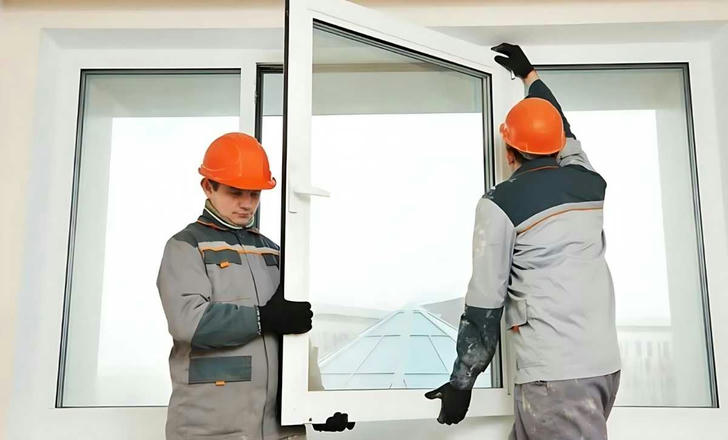💡 Window Installer Career in the U.S.: Real-World Overview and Job Advantages
Window installers play a vital role in construction, offering a stable career and great pay for those seeking long-term growth. Because the position has a lower entry threshold than other engineering technical positions and training is often provided, it is a good fit even without formal education or years of relevant experience.

What Does a Window Installer Do?
Window installers are responsible for removing, installing, and securing residential or commercial windows. Their typical duties include:
• Measuring window openings to ensure a proper fit
• Removing old windows and associated hardware
• Installing new window units (vinyl, wood, aluminum, etc.)
• Applying sealants and waterproofing materials
• Adjusting window mechanisms for proper function
• Cleaning up job sites and adhering to safety regulations
Most work is done outdoors and may involve working at heights or handling heavy materials.
📋 Real-World Entry Requirements
While the job does not require a college degree, it is not typically entry-level. Based on verified job listings and employer expectations:
• Experience:
Most employers require 1–3 years of prior experience in window installation, carpentry, or general construction. Advanced positions may require more.
• Driver’s License:
A valid driver’s license is commonly required to travel between job sites.
• Own Tools and Transportation:
Some jobs require applicants to provide their own tools and vehicle.
• Certifications:
OSHA 10• or 30-hour safety certifications are often preferred.
• Soft Skills:
Attention to detail, punctuality, and the ability to follow instructions are valued by employers.
Rare “trainee” or “helper” positions exist, but they are limited and often pay lower wages during training.
💵 Hourly Wages by City (General Ranges)
| City | Hourly Wage Range (USD) | Notes |
|---|---|---|
| New York | $18 – $28 | Higher pay due to cost of living |
| Los Angeles | $17 – $26 | High demand in residential renovation |
| Chicago | $16 – $25 | Strong demand, especially seasonally |
| Houston | $15 – $23 | New development drives consistent work |
| Miami | $16 – $24 | Year-round outdoor work available |
Wages increase with certifications, experience, and specialization in complex installations.
✅ Real Advantages of the Profession
| Advantage | Details |
|---|---|
| Skilled Trade Recognition | Recognized trade with growing demand across residential and commercial sectors. |
| No College Degree Needed | Hands-on experience and skill valued over formal education. |
| Certifiable Career Path | Pathways include certifications like EPA Lead-Safe, OSHA, or NARI. |
| Tool-Based, Practical Work | Ideal for those who enjoy working with tools, precision tasks, and varied job sites. |
| Potential for Independence | Experienced installers may become subcontractors or start their own business. |
| Basic Benefits Offered | Many employers offer health insurance, workers’ comp, paid time off, and overtime pay. |
🎁 Common Job Benefits for Window Installers
Health Insurance: Includes medical, dental, and vision coverage, often partially or fully employer-paid
Workers' Compensation: Covers medical care and lost wages in case of on-the-job injuries
Overtime Pay: Time-and-a-half pay for hours worked beyond 40 per week; higher rates on holidays
Paid Time Off (PTO): Includes holidays, sick leave, and vacation time, usually accrues over time
401(k) Retirement Plan: Some employers offer retirement savings with company match contributions
Tool Allowance or Provided Tools: Companies may supply required tools or offer a yearly tool stipend
Training Opportunities: Access to brand-specific installation training, OSHA safety courses, and trade certifications
📈 Career Development Path
• Year 0–1: Apprentice or helper (if available); support tasks and learn fundamentals
• Year 1–3: Full installer role — performing installations independently or in small crews
• Year 3+: Advancement to crew leader, field supervisor, or specialty installer
• Later Stages: Become a licensed subcontractor, project manager, or start a small business
Upskilling through safety certifications or product-specific training (e.g., Andersen, Pella) enhances opportunities.
🧭 How to Find Reliable Jobs
• Major platforms: Indeed, ZipRecruiter, Glassdoor, and HomeAdvisor
• Local unions or trade associations: Offer access to licensed contractors and training resources
• Company websites: National chains and regional contractors often post openings directly
• Avoid unlicensed middlemen: Ensure the company is insured, licensed, and has a legitimate track record
🛠️ Conclusion
Becoming a window installer is a viable career choice for those with a background in the trades who seek a specialized, stable, and well-compensated path. While the job requires experience and a high level of responsibility, it rewards skill and consistency with long-term opportunities — from dependable wages and benefits to independent contracting.
